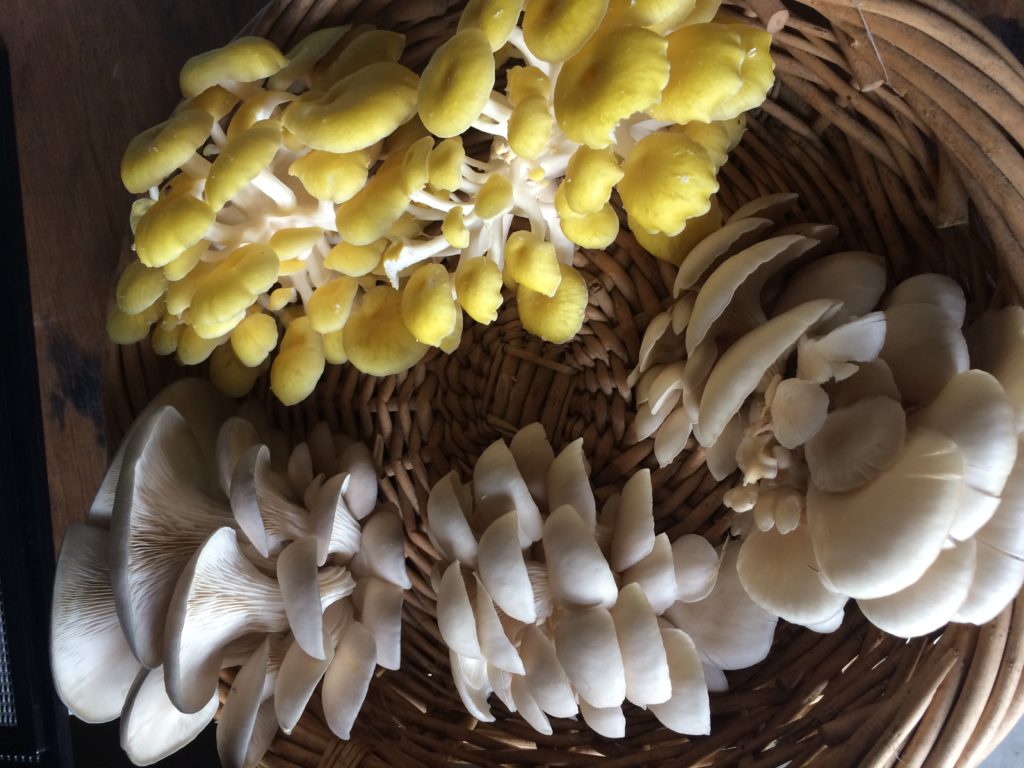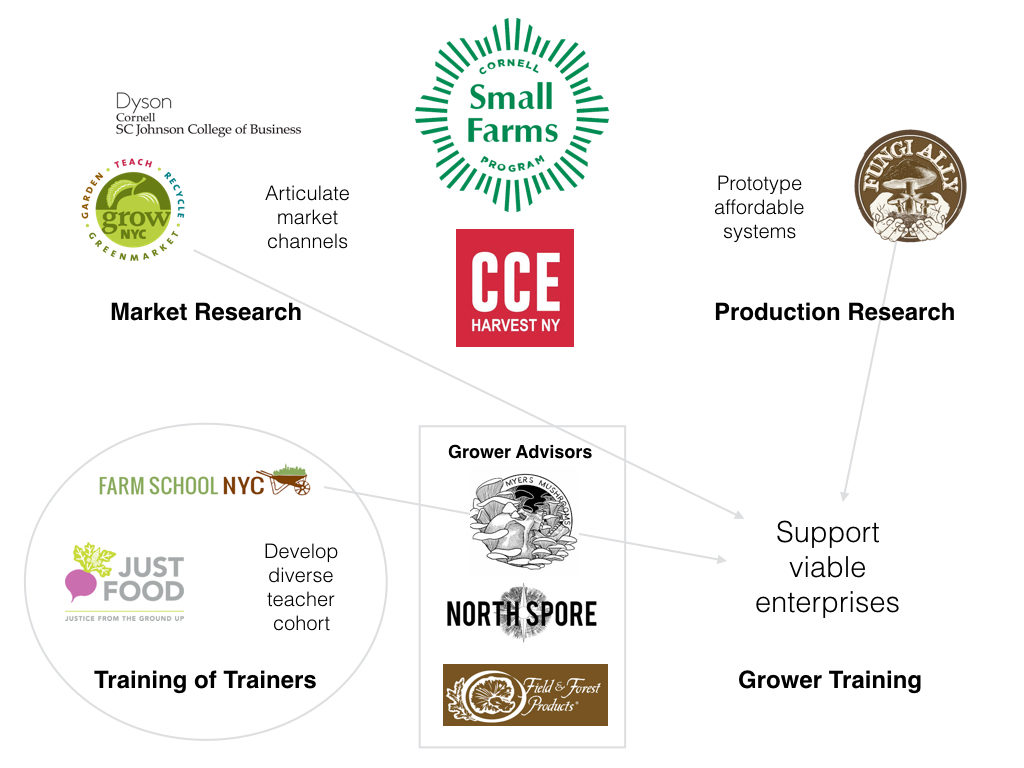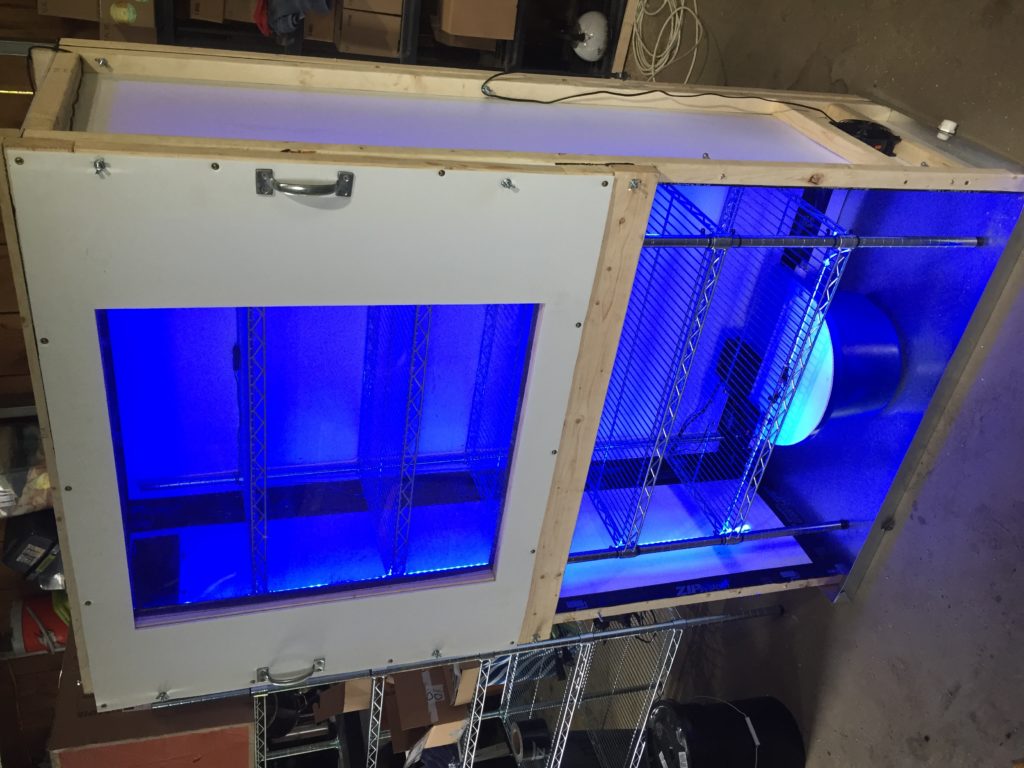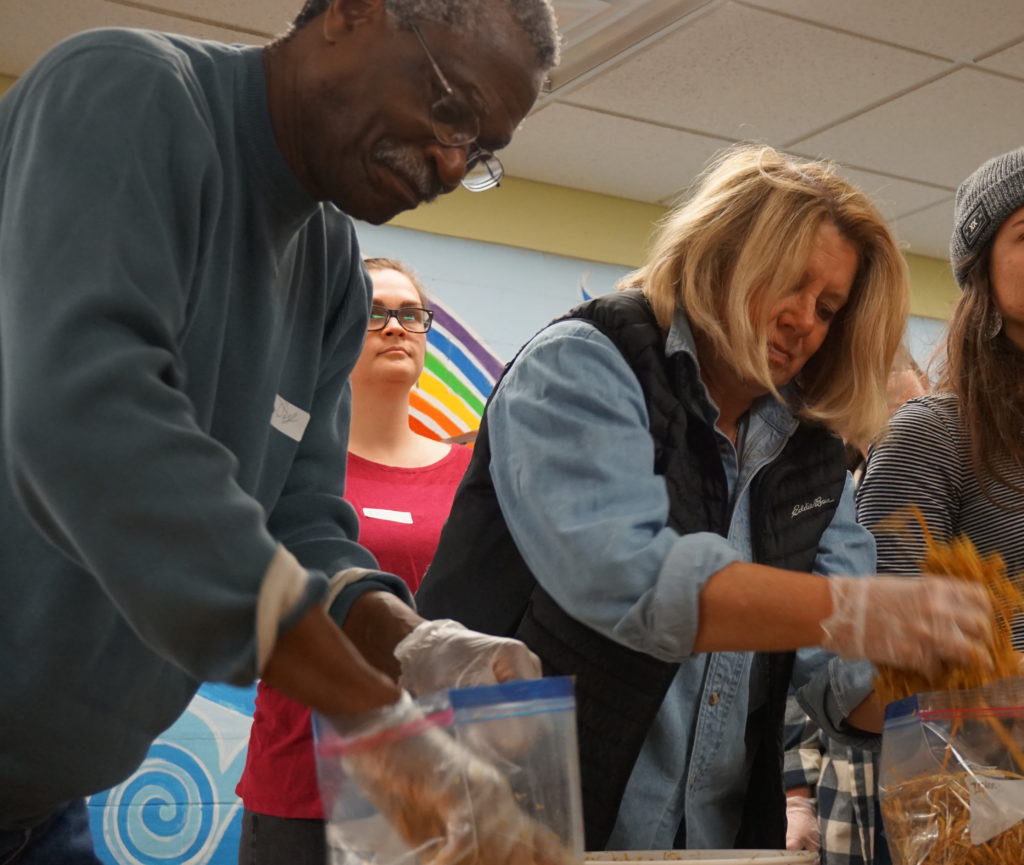Specialty Mushroom Project Expands to Serve Diverse Urban and Rural Growers
Interest in specialty mushrooms (defined as any non-button variety) from both farmers and consumers is growing rapidly, with demand increasing by 4% annually in the U.S. Given the flexible scale of production systems, mushrooms are well positioned for production by a diverse range of small and mid-sized farmers in urban and rural settings.
With funding support from USDA, NE-SARE, and Cornell Cooperative Extension, the Cornell Small Farm Program’s Specialty Mushroom Project is partnering with a number of prominent organizations to elevate mushroom farming and connect small-scale producers to resources and support so that new enterprises directly benefit a wide range of communities. While our focus is the NYC foodshed and Northeast U.S., many of the resources and events we offer will prove useful for growers around the country.

Oyster mushrooms are a common commercial crop. Steve Gabriel / Small Farms Program
Community partners are an essential part of this effort. In addition to Cornell Small Farms Program mushroom specialist Steve Gabriel and Urban Ag Specialist Yolanda Gonzalez of CCE-Harvest NY, the project is engaged with GrowNYC, Just Food and Farm School NYC — non-profit organizations supporting beginning farmers and ensuring a robust and equity-based food system. The Dyson School at Cornell University, as well as the Cornell Food Venture Center, is engaged in market channel research to improve grower access to outlets for fresh, dried, and value-added products.
The project is also partnering with several industry suppliers including Fungi Ally (MA), Field and Forest Products (WI), Smallhold (NY), North Spore (ME), and Smugtown Mushrooms (NY). As a network, each participant brings a unique skill set and focus to the table, and together the project can reach into many facets to move the industry forward and support it to benefit diverse communities through entrepreneurial development, increased food access, and new job creation.

A visual of our project partners.
The project has four main areas of focus, with different partners contributing to one or more of these areas:
Production Research
The goal with our production research is to build out and prototype indoor production units, estimating the economics of starting up and maintaining a small enterprise. To do this, we are constructing two units; one that is about 2 feet by 4 feet by 8 feet, providing one rack of production that can do 5 – 10 lbs per week, and a 40-ft shipping container, which should produce closer to 100 lbs per week. Each simulated unit allows us to collect quantitative (costs, energy use, changes over the season) and qualitative data to optimize mushroom yields and economic potential, minimize time and energy expenses, and resolve management and labor constraints that might arise in intensive small-scale system.
Results from multiple years of trials will allow the research team to identify best practices for containerized production, and develop accurate enterprise budgets for growers to make use of when planning their own enterprises. This research builds off previous work we have done with outdoor log-grown shiitake, where multiple years of production modeling provided clear numbers of the cost of production, labor hours required, and sales potential, which are summarized on our “Economics and Markets” page of the website: smallfarms.cornell.edu/projects/mushrooms/economics-and-markets/
Overall, what we know from experience is that startup enterprises will vary in cost depending on the scale and context, but markets for specialty mushrooms are very strong and premium prices ($9 – $12 wholesale and $12 – $20 retail) can be achieved for locally produced, high quality mushrooms. The emphasis is on quality. A grower has to learn how to manage all aspects of production to keep this high, and must also develop markets. A successful enterprise is equally about the time spent on the technical aspects of production, coupled with developing strong and lasting market relationships. Too often, new growers focus on production and then find themselves with a ton of product, and no idea where or how to sell it.
Grower Training and Support
The Cornell Small Farms Program’s specialty mushroom website (www.CornellMushrooms.org) has a new look and allows easy access to a host of resources including videos, printed guides, a directory of suppliers, and a grower listserv, with now over 400 members. We offer 6-week online courses each year; one focused on outdoor production systems and the other on indoor. We also host monthly webinars which can be viewed live or watched anytime on our YouTube channel: https://tinyurl.com/MushroomWebinars
In 2019, we partnered with the FarmOPS project (also part of Cornell Small Farms Program) to specifically offer trainings to veterans engaged in agriculture. Olga Tzogas (Smugtown Mushrooms), Steve Gabriel (CU Small Farms), and Tradd Cotter (Mushroom Mountain) all offered one day workshops and we installed one of the small growth chambers at the EquiCenter farm in Honeoye Falls, NY.

A mini growth chamber that should produce about 5lbs per week.
For the last few years, we’ve partnered with Willie Crosby of Fungi Ally, who is an experienced grower at multiple scales. We have been co-facilitating the online course BF 153: Indoor Specialty Mushroom Production, and have developed several videos about indoor production. Willie was able to secure a NE-SARE grant where we will partner to offer growers specific and targeted assistance as they start mushroom farms. There will be 10 trainings for prospective growers around the Northeast this coming fall and winter, followed by online learning and the opportunity for growers to apply to receive one-on-one consulting support for their new businesses in 2020. Learn more details about this aspect of the project at: https://fungially.com/growing-mushrooms/.
Training of Trainers
A third element of the project stems from the overwhelming demand for mushroom classes, and not enough agricultural service providers to adequately meet that demand for education on specialty mushroom cultivation. Our partnership with Farm School NYC and Just Food is drawing upon these organizations’ experiences with popular education and train-the-trainer efforts to develop a teaching curriculum and toolkit so we can grow a network of educators working in diverse communities around the Northeast. This is supported with funds from USDA-AFRI as well as the NE-SARE Professional Development Grants.
We will offer a two-year Community Mushroom Educator Training that aims to build a cohort of 60 service providers and educators from urban and rural centers throughout the Northeast. Through technical training and project-based learning grounded in popular education methodology and principles, mushroom educators will gain valuable knowledge and benefit from the collective experience of the mushroom educator cohort. Sixty individuals will be invited to join this training. In our second year, a selection of 16 educators who attended the first round of trainings and are geographically dispersed throughout the Northeast will receive ongoing support and mentoring as they implement education projects in their communities.

Students at a hands-on mushroom workshop. Steve Gabriel / Small Farms Quarterly
Market Research
Our final focus is to better understand the market potential for small producers, culminating in a guide to market channels for specialty mushroom producers. There is currently inadequate data about consumer and buyer preferences for mushrooms, and in partnership with Cornell Dyson we will be collecting and analyzing data from farmers, market shoppers, and wholesale distributors. Currently, specialty mushrooms are most often sold through several marketing channels: farmers’ markets and farm stands, restaurants, CSA’s (community supported agriculture), small retail stores, and regional produce distributors. Research on current production volume, interactions between farms and buyers, and current use of specialty mushrooms in markets of varying size and scale will help us articulate the local market potential and assesses the role different market channels can play in grower decision-making.
Stay Connected
Overall, our goal of this project is to increase the number and diversity of mushroom growers around the northeast, and beyond. We are here for technical support questions as well as support navigating the legal and regulatory landscape. In addition to contacting us directly, two easy ways to keep connected to the project are to attend our monthly webinar series (or watch the recordings posted to YouTube) and join our Grower listserv, which has about 400 active and interested mushroom growers from all over. We share the latest news and updates to this list, but it is also a great place to ask questions and get responses not only from our staff, but drawing upon the collective knowledge of the group. Our network page on the website (https://smallfarms.cornell.edu/projects/mushrooms/network) also has a directory of suppliers for all the materials you need for production.

